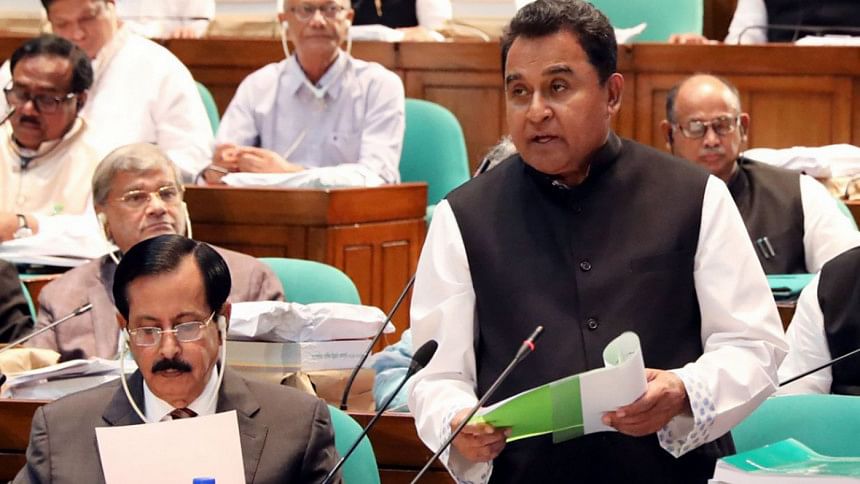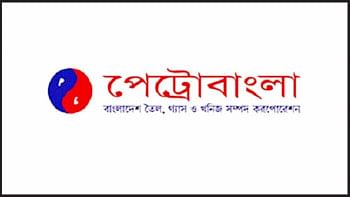Time to reform the finance ministry for robust growth

It is hard to achieve a growth of around 8 percent, and it will be even harder to maintain this trend unless we reform our ministry of finance (MOF) to steer the economy in the right direction. An MOF is usually the chief conductor of the orchestra of a country's business. In Bangladesh, with the growth of its economy over the decades, the MOF's tasks have also grown in number, complexity and magnitude, so much so that we have reached a stage that is quite unmanageable. This was brought about by a combination of factors including inefficiency, non-implementation of policies, as well as decisions posing threats to future growth. Given the situation, it would be advisable to revamp and restructure the MOF—not to make it less powerful, but to make it slimmer and more dynamic. The ministry should be split into four independent ministries if we really want to be a trillion-dollar economy by 2035.
Splitting and reconstructing ministries is not a rare thing. Many countries including Bangladesh have a history of creating, splitting or merging ministries to cater for the ever-changing demands of time. Who would have thought that countries like the UAE, Venezuela, Nigeria, and Bhutan would have a ministry of happiness? We won't be surprised if one day Bangladesh follows in their footsteps by creating a ministry to respond to the citizens' need to handle modern-day complexities that often result in frustration, isolation or worse.
To tackle illiteracy and poverty, the government once decided to split the education ministry into two. The new ministry—the ministry of primary and mass education—went on to revolutionise mass education, a feat that wouldn't have been possible under a unified, British-style education ministry alone. Once India's Prime Minister Dr Manmohan Singh said, "We have missed the industrial revolution, but we can't miss the revolution of information technology." So India created three different ministries for: 1) science and technology, 2) electronics and information technology, and 3) information and broadcasting. India has proved that this division of labour was productive and successful.
Bangladesh has drawn global attention for its economic growth. But more challenges lie ahead on the way to make this growth robust and sustainable. And handling all the challenges through the MOF has been increasingly difficult, as evidenced by its weaknesses and failures seen on numerous occasions. The banking sector, tax administration, and private investments are notable failures that demand the creation of separate ministries so that the MOF can work more effectively on its main job of budget allocations and deficit financing. While the government has created or kept on preserving many ministries that control only one or two percent of the GDP, the MOF has been burdened with the responsibility of controlling more than 50 percent of GDP. (The annual budget occupies almost 20 percent of GDP.) Our growth will start to decline if we don't relieve the MOF of this burden of work.
So, for the sake of greater dynamism in the economy, the existing MOF should be split into the following four ministries: 1) the ministry of finance, 2) the ministry of taxes and revenue, 3) the ministry of infrastructure, and 4) the ministry of economic relations and investment. Why? Bangladesh's tax-GDP ratio has been hovering around 9-10 percent for decades—one of the lowest in the world. It's the main constraint on budgeting expansion which the country seriously needs to increase employment opportunities and development.
The most difficult task of tax collection, which the National Board of Revenue (NBR) is currently struggling to carry out, shouldn't be run by just a senior bureaucrat. It must be run by a minister who will possess the political authority to bring the business magnates, loan defaulters, money launderers and other such disruptive forces under control. This is simply an impossible task for a public servant though it might have been manageable during the British-Pak periods. Times have changed, and so have our needs and challenges.
Despite the government's continuous efforts to build basic structures, flyovers, bridges, roads, and highways, Bangladesh has been suffering from serious infrastructural bottlenecks. We are grappling with the construction of Metro Rail which, when completed, will still be inadequate for our fast-growing and highly-populated capital city. We still haven't started building the Patal Rail (underground metro train system) without which Dhaka dwellers won't be able to survive after ten years or so. The Annual Development Program (ADP), which is run under the MOF, often remains underutilised up to 50 percent even after 10 months of the fiscal year, indicating the MOF's lack of capacity to handle ADP.
Many countries have separated the task of infrastructure building from the ministries of finance or roads and highways. In a meeting with the Asian Infrastructure Investment Bank (AIIB) in Beijing, I asked their policymakers whether the AIIB would replace some tasks of the World Bank. They asserted that the WB is no longer capable of addressing all the infrastructural needs that Asia will require in the coming days. Bangladesh is part of the map and the government will never regret making a separate ministry for infrastructure.
Bangladesh is gradually turning into a lazy saving society while credit mainly goes to the government's non-market operations of Sanchayapatra. Investment as a share of GDP, though rising, is mainly sourcing from the government whose aggression may crowd out private investment in the future. So, we need a vigorous growth of private investments. The government's experiment with the Board of Investment (BOI) has failed. The new experiment—with Bangladesh Investment Development Authority (BIDA), which is run by bureaucrats—hasn't been producing good results either. Bangladesh's position in the Doing Business Index has remained in the lowest rung in South Asia, and has recently fallen below Afghanistan. A new ministry of economic relations and investment will look after investments, both domestic and foreign, and make the best use of foreign funds and grants which are over USD 30 billion, clogging the pipeline for ages.
Institutional reforms in China are the reason why the country has been able to maintain a double-digit growth for a quarter century. Its MOF mainly makes the budget, conducts fiscal policy, and determines government expenditures. They have separated macro-management and developmental policymaking from MOF and given the tasks to NDRC (National Development and Reform Commission). China's central bank, or PBC (Peoples' Bank of China), is entirely authorised to handle money and financial markets, banking affairs, and interest rates without any interference from the MOF. The heads of MOF, PBC and NDRC enjoy equal ministerial powers and they all sit on China's State Council to design national policies. By contrast, Bangladesh's central bank is entirely spoon-fed by the MOF, which in part demonstrates why our banking sector is in a shambles.
Moreover, we should also consider the possibility of dismantling unnecessary departments such as the banking division, National Savings Directorate (NSD), and Bangladesh Petroleum Corporation (BPC). These redundant agencies are doing more harm than good by spawning disturbances and corruption. Reforms are inevitable for growth.
Biru Paksha Paul is a professor of economics and finance at the State University of New York at Cortland. He is the author of "Empowering Economic Growth for Bangladesh: Institutions, Macro Policies, and Investment Strategies" (2018). Email: [email protected]

 For all latest news, follow The Daily Star's Google News channel.
For all latest news, follow The Daily Star's Google News channel. 



Comments